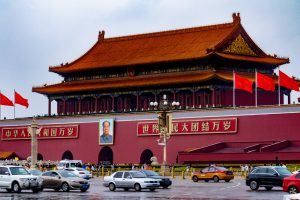IN THE NEWS
A writ petition was filed before Madras High Court that newspapers are capable of spreading the COVID virus through the surface and hence the same should be prevented. The tendency of newspaper to spread the virus is far more than currency was argued. The Hon’ble Court dismissed this PIL. Even residential welfare associations were trying to prevent the circulation of the newspaper. The Vidharbha daily newspaper even suspended the newspaper printing till March 31, 2020. There was news reported in various newspaper, that newspaper is an essential service and hence its distribution cannot be prevented.
THE ESSENTIAL SERVICES MAINTENANCE ACT, 1981
Entry 29 of the Concurrent List under the Constitution of India empowers the central as well as state governments to legislate on matters pertaining to the prevention of infectious or contagious diseases spreading from one state to another.
Entry 29 of Schedule VII of the Constitution of India: The prevention of the extension from one State to another of infectious or contagious diseases or pests affecting men, animals or plants.
The Essential Services Maintenance Act (ESMA),1968 was enacted by the Parliament of India in the year 1968. Its main objective is to maintain the smooth movement of those things which are essential for the normal life of the common citizens.
The Essential Commodities Act (ECA) was enacted by the Central Government in the year 1955 to control and regulate trade and prices of commodities declared essential under this Act.
Newspaper is part of the concurrent list and therefore both the State and Central government has the power to make laws.
ESSENTIAL SERVICES CLASSIFIED UNDER THE ESMA
The Essential Services Maintenance Act, 1981 (ESMA) was enacted in the year 1968 and subsequently, it was amended in the year 1980 and 1981. ESMA is a law under the concurrent list. The Statement of Objects and Reason provide that the said Act was enacted keeping in mind that there might arise a situation where the normal life of the society may be disrupted. The legislature wanted to make sure that in such a case, where the normal life of the society is disrupted then the service for certain essential service should not stop.
Section 2(1) (a) of the said Act defines what are essential services. The following are the services which have been defined as essential under the Act-
(i) Any postal, telegraph or telephone services.
(ii) Any railway or any transport service.
(iii) Any service or operation connected with the operation or maintenance of aerodromes.
(iv) Any service in, or in connection with the working of any major port.
(v) Any service connected with the clearance of goods or passengers through the customs.
(vi) Any service in any establishment of, or connected with the armed forces of the Union or other establishment or installations connected with the defence.
(vii) Any service in any establishment or undertaking with the production of goods required for any purpose connected with defence.
(viii) Any service in any section of any industrial undertaking.
Explanation. -For the purposes of this sub-clause, the expressions “industrial undertakings’ and “scheduled industry” shall have the meaning respectively assigned to them in clauses (d) and (i) of Section 3 of the Industries (Development and Regulation)
(ix) Any service in, or in connection with, the working of any undertaking owned or undertaking engaged in the purchase, procurement, storage, supply or distribution of food grains.
(x) Any service in, or in connection with the working of, any system of public conservancy sanitation or water supply, hospitals or dispensaries.
(xi) Any service related to Banking.
(xii) Any service related to production, supply and distribution of coal, power, steel or fertilizers.
(xiii) Any service related to the oil refinery and petroleum products.
(xiv) Any service in any mint or security press.
(xv) Any service in connection with elections to Parliament or to the Legislatures of the
(xvi) Any service in connection with the affairs of the Union, not being a service specified in any of the foregoing sub-clauses.
(xvii) Any other service-connected with matters with respect to which Parliament has the power to make laws.
Only these services mentioned in clause 2 (a) are essential. The Act does not specifically provide for newspapers to be essential services. If the newspaper were to be considered essential service then the State can under Section 2 (1) (a) (xvii) notify the newspaper to be an essential service.
EXTENT OF THE APPLICATION OF THE ESMA
Section 2 states it extends to the whole of India. Provided that it shall not apply to the State of Jammu and Kashmir in so far as it relates to any essential service connected with matters with respect to which Parliament has no power to make laws for that State.
PENALTY FOR VIOLATION UNDER ESMA
The said Act prescribes certain punishments as well. Section 3 of the said Act gives the central government the power to prohibit the strike of any essential service by way of a special order. In the said order itself, the government will have to mention the essential service industry. While the central government can issue such an order in the public interest or if it is expedient to do so. Thus, if any person who commences a strike after the central government has given the special order then that strike is illegal. Also, Section 5 provides that such a person who commences such a strike can be punished with imprisonment for a term which may not exceed six months or he may be fined one thousand rupees or both. Section 6 provides that the person who instigates or incites a strike which is illegal as per Section 3 of the act can be punished with imprisonment up to one year or fine of two thousand rupees or both. While Section 7 provides that the person who provides for financial aid to such a strike will be he punished with imprisonment for one year or fine of two thousand rupees or both.
Section 10. Power to arrest with warrant-Notwithstanding anything contained in the Code of Criminal Procedure, 1973 (2 of 1974), any police officer may arrest without warrant any person who is reasonably suspected of having committed any offence under this Act.
Section 11. Offences to be tried summarily. -Notwithstanding anything contained in the Code of Criminal Procedure, 1973 (2 of 1974) all offences under this Act shall be tried in a summary way by any Metropolitan Magistrate, or any Judicial Magistrate of the First Class specially empowered in this behalf by the State Government and the provisions of Sections 262 to 265 (both inclusive) of the said Code shall, as far as may be, apply 438 to such trial:
Provided that in a case of conviction for any offence in a summary trial under this section, it shall be lawful for the Magistrate to pass a sentence of imprisonment for any term for which such offence is punishable under this Act.
CONCLUSION
The present crisis is undoubtedly challenging both for system and its people. The legal framework like- section 144 of the Code of Criminal Procedure, 1973; ESMA, Essential Commodities Act, 1955; Epidemic Disease Act,1897, Disaster Management Act, 2005 are all in place to handle the crisis and other issues. The restrictions being imposed under the interplay of the above Acts. The various restrictions in place are the interplay of various provisions under the aforesaid Act. Newspaper is not notified under the ESMA as essential services. However, the Consolidated Guidelines issued previously has notified that shops and establishment to remain closed with the exception of those notified which includes print and electronic media. TRAI too has notified the printing press and distribution of newspaper as critical infrastructure. Therefore, any restriction in the wake of the current crisis should be made keeping such operators and the entire chain of such functionaries operational.
ABOUT THE AUTHOR YUGANTAR SINGH CHAUHAN This article is authored by the Legal Research Assistant of the Indian Law Watch and a practicing advocate before the High Court of Delhi.













Add Comment